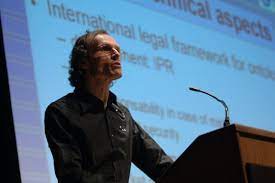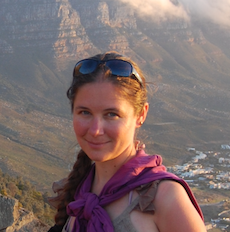Basic Formal Ontology Summit Meeting: Difference between revisions
No edit summary |
mNo edit summary |
||
| Line 21: | Line 21: | ||
Those wishing to present a paper at this meeting, including at the workshops mentioned below, should submit a short abstract (~200 words) to John Beverley [mailto:johnbeve@buffalo.edu] <b>before February 15th</b>. Confirmation of acceptance will be issued by February 28th. Paper presentations are especially welcome on applications, uses cases, and practical aspects of employing BFO. | Those wishing to present a paper at this meeting, including at the workshops mentioned below, should submit a short abstract (~200 words) to John Beverley [mailto:johnbeve@buffalo.edu] <b>before February 15th</b>. Confirmation of acceptance will be issued by February 28th. Paper presentations are especially welcome on applications, uses cases, and practical aspects of employing BFO. | ||
Those wishing to present a workshop should contact Barry Smith [mailto:phismith@buffalo.edu] | Those wishing to present a workshop should contact Barry Smith [mailto:phismith@buffalo.edu] as soon as possible. Note that we are planning for a meeting consisting entirely of plenary sessions. Hence, the number of workshops will be kept to a minimum. | ||
== '''Keynote Speakers''' == | == '''Keynote Speakers''' == | ||
Revision as of 16:07, 15 January 2023
Announcement
The 2023 Basic Formal Ontology Summit Meeting will be held May 23rd-25th, 2023. The aims of the meeting are:
- to bring together researchers who have played an important role in the development and application of BFO, to highlight the practical impact and value of using BFO as a top-level architecture,
- to identify and work through outstanding issues experienced by users of BFO,
- to begin the creation of a set of BFO-conformant ontologies in the domain of government policy and data
Subsidiary goals are:
- to showcase real-world examples of incorporation of BFO in development pipelines and their practical impacts
- to promote collaboration across different groups of BFO users
- to share case studies illustrating challenges arising in BFO use, evaluation, interpretation, and revision
- to reveal differences in interpretation of BFO terms and relations, and of associated strategies for using BFO
- to share strategies of evaluation of BFO from different user bases
- to identify and disseminate strategies for improving the quality of BFO-based ontologies
Paper and Workshop Presentations
Those wishing to present a paper at this meeting, including at the workshops mentioned below, should submit a short abstract (~200 words) to John Beverley [1] before February 15th. Confirmation of acceptance will be issued by February 28th. Paper presentations are especially welcome on applications, uses cases, and practical aspects of employing BFO.
Those wishing to present a workshop should contact Barry Smith [2] as soon as possible. Note that we are planning for a meeting consisting entirely of plenary sessions. Hence, the number of workshops will be kept to a minimum.
Keynote Speakers
We are happy to announce four keynote speakers (information will be updated as it becomes available).

Division Chief, Biomedical Ontology
Department of Biomedical Informatics
University at Buffalo, Jacobs School of Medicine & Biomedical Sciences
The first keynote will be given by Werner Ceusters, who will speak on
The Axiomatization of BFO 2020: The Good, The Bad, and The Ugly Abstract

Director of Clinical and Translational Data Exchange
University at Buffalo, School of Dental Medicine
and will be titled Time Matters

Assistant Professor of Medical Knowledge and Decision Support, Institute for Implementation Science in Health Care, Faculty of Medicine, University of Zurich
Vice-Director, School of Medicine, University of St. Gallen
Field Reports from Using BFO in Scientific Ontologies

Division Chief, US Border Patrol
Date
May 23 (Tuesday) - 25 (Thursday), 2023
Venue
University at Buffalo, Buffalo, NY, 14260
Tentative Schedule
Day 1
- Keynote: Werner Ceusters, The Axiomatization of BFO 2020: The Good, The Bad, and The Ugly
- Keynote: Alan Ruttenberg, Time Matters
- Workshop: BFO-ISO (Chair - Barry Smith)
- Potential topics include but are not limited to:
- Background and significance
- Proposals for future revisions and extensions
- Relationship to other standards
Day 2
- Keynote: Janna Hastings, Field Reports from Using BFO in Scientific Ontologies
- Workshop: BFO in Application (Chair - John Beverley)
- Potential topics include but are not limited to:
- Demonstrations of benefits associated with using BFO as a top-level architecture
- Examples of BFO-based temporal reasoning
- Comparisons of the use of BFO with other upper-level ontologies
Day 3
- Keynote: Ryan Riccucci, TBD
Organizers
John Beverley (University of Buffalo, Buffalo, NY), [3]
Barry Smith (University at Buffalo, Buffalo, NY), [4]